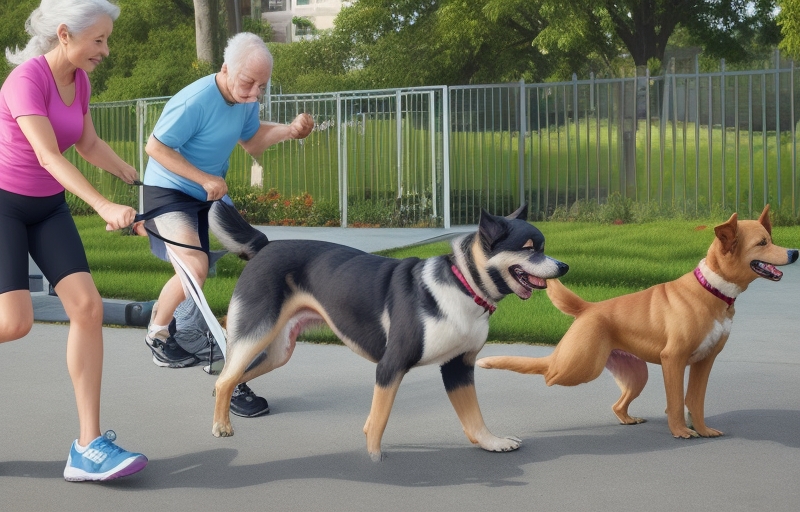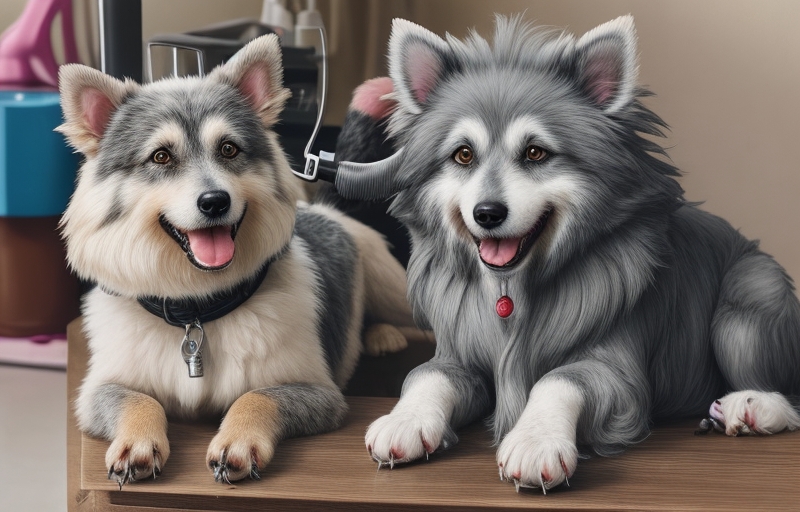Living with a senior dog comes with its own set of challenges and responsibilities. Learn about the Things You Must Avoid When Living With a Senior Dog Discover essential tips for providing the best care and improving the quality of life for your senior dog.
Introduction
As our beloved furry friends age, their needs and preferences change, requiring us to adapt our approach to their care. Senior dogs, just like elderly humans, may experience various health issues and behavioral changes that necessitate a different set of considerations. In this article, we’ll explore 12 things you must avoid when living with a senior dog to ensure their well-being and happiness.
Read Also: What are the Red Flags When Picking Out a Puppy? Also, discuss Signs
Things You Must Avoid When Living With a Senior Dog

1. Neglecting Regular Bloodwork and Health Screenings
As dogs age, they become more susceptible to various health conditions such as kidney disease, diabetes, and thyroid issues. Neglecting regular bloodwork and health screenings can result in the delayed detection of these conditions. Work closely with your veterinarian to establish a routine screening schedule, enabling early diagnosis and effective management of any potential health issues.
2. Inadequate Nutrition
Things You Must Avoid When Living With a Senior Dog. Senior dogs require a balanced and age-appropriate diet to support their changing nutritional needs. Avoid feeding them food meant for younger, more active dogs, as this may contribute to weight gain or nutritional deficiencies. Consult your veterinarian to determine the best diet plan for your senior dog, considering factors such as weight, health conditions, and activity levels.
3. Lack of Exercise

While senior dogs may not be as active as their younger counterparts, regular exercise is still crucial for maintaining their joint health and preventing obesity. Avoid a sedentary lifestyle and tailor exercise routines to your dog’s capabilities, focusing on low-impact activities like gentle walks and swimming.
4. Overlooking Dental Care
Dental health is often neglected but is particularly important for senior dogs. Ignoring dental care can lead to painful dental issues, affecting your dog’s overall well-being. Establish a routine of regular teeth brushing, provide dental treats, and consult your vet for professional dental care when needed.
5. Neglecting Mental Stimulation
Senior dogs may experience cognitive decline, leading to behavioral changes. Avoid neglecting their mental stimulation by incorporating interactive toys, puzzle feeders, and gentle training sessions into their daily routines. This helps keep their minds active and engaged.
6. Ignoring Mobility Challenges
Arthritis and joint issues are common in senior dogs, impacting their mobility. Avoiding the issue or assuming it’s just a natural part of aging can lead to unnecessary suffering. Invest in orthopedic bedding, provide ramps or stairs for elevated surfaces, and consult your vet for appropriate pain management options.
7. Disregarding Changes in Behavior
Behavioral changes in senior dogs may indicate underlying health issues. Ignoring these changes, such as increased aggression, disorientation, or excessive barking, can lead to delayed diagnosis and treatment. Keep a close eye on your dog’s behavior, and promptly consult your vet if you notice any unusual signs.
8. Skipping Grooming Sessions

Maintaining proper grooming practices is essential for a senior dog’s well-being. Neglecting grooming sessions can lead to matting, skin infections, and other issues. Regular brushing, nail trims, and ear cleaning are crucial aspects of senior dog care.
9. Overlooking Environmental Modifications
Senior dogs may struggle with navigating their surroundings due to vision or mobility issues. Avoid potential hazards by making necessary modifications to your home, such as adding non-slip rugs, securing loose cords, and providing well-lit areas.
10. Inadequate Parasite Prevention
Senior dogs remain susceptible to parasites, and neglecting parasite prevention measures can lead to severe health issues. Follow your veterinarian’s recommendations for flea, tick, and heartworm prevention to keep your senior dog protected.
11. Dismissing Pain Signals
Dogs are often adept at hiding pain, and senior dogs may be more prone to chronic conditions. Dismissing signs of pain, such as limping, reluctance to move, or changes in appetite, can result in delayed treatment. Regularly observe your senior dog and seek veterinary attention if you suspect any discomfort.
12. Ignoring Emotional Needs
Senior dogs, like humans, may experience changes in mood and disposition. Avoid neglecting their emotional needs by providing comfort, attention, and love. Spend quality time together, offer gentle massages, and be attentive to their signals for companionship.
Conclusion
Things You Must Avoid When Living With a Senior Dog. Living with a senior dog requires attention to their evolving needs. By avoiding these common pitfalls, you can provide the best care for your aging canine companion, ensuring a happy and healthy life in their golden years.
FAQs:
Q1: How often should I take my senior dog to the vet?
Senior dogs should have regular veterinary check-ups at least twice a year, or as recommended by your veterinarian.
Q2: Can I continue feeding my senior dog the same food as when they were younger?
It’s essential to transition to a senior-specific diet to meet the changing nutritional needs of your aging dog. Consult your vet for appropriate dietary recommendations.
Q3: Are there specific exercises suitable for senior dogs?
Low-impact exercises, such as gentle walks and swimming, are ideal for senior dogs. Consult your vet to tailor an exercise routine based on your dog’s individual needs.
